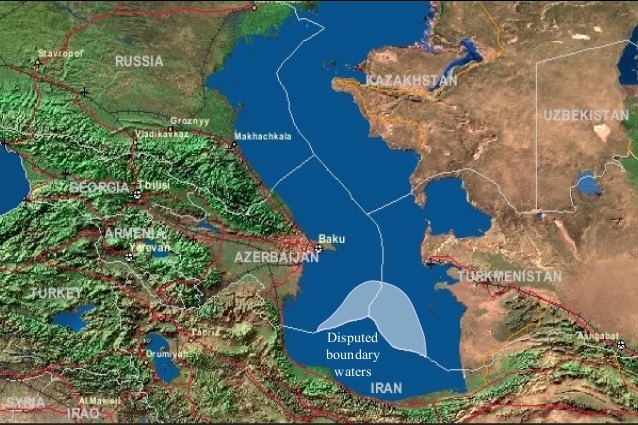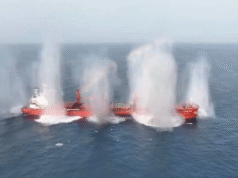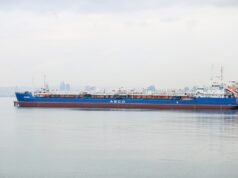By Abdul Kerimkhanov
Deputies of Parliament’s Senate of Kazakhstan ratified the protocol to the agreement with Russia on delimitation of the bottom of the northern part of the Caspian Sea on December 6.
As Makhambet Dosmukhambetov, Acting Minister of Energy of the Republic of Kazakhstan, said, the document provides for the extension of the exploration period for 6 years in the entire contract area with the possibility of a further extension for 4 years, as well as the extension of the contract territory.
Under the contract area are meant three fields: Kurmangazy (Kulalinskaya), Khvalynskaya and Tsentralnaya. The Khvalynskaya and Tsentralnaya projects are located in the Russian sector of the Caspian Sea.
The deputy head of the agency said that within the framework of the feasibility study, the Khvalynskaya project is currently working on options for developing the field, taking into account gas marketing.
“There are approved reserves – 322 billion cubic meters of gas, 1.1 million tons of condensate, additional exploration is required to clarify oil reserves. According to the Central project, on September 5, 2016, a license was obtained for a period of 27 years, of which 7 years are devoted to exploration,” the deputy concluded.
Meanwhile, the Kurmangazy project is being implemented in accordance with the production sharing agreement concluded on July 6, 2005, under the same intergovernmental agreements. The Kurmangazy area of 3,500 square kilometers is located in the Kazakh sector of the Caspian Sea.
Since the conclusion of the production sharing agreement at the Kurmangazy site, 2 wells were drilled in the suprasalt sediments: in 2006 the Kurmangazy No. 1 well with a depth of 2002 meters and in 2009 the Kurmangazy No. 2 well with a depth of 1600 meters.
The signing of the Convention on the Legal Status of the Caspian Sea was a truly historic and event, marking the goodwill of the five coastal states.
As a result of the summit, the Caspian Sea gained a special, unique status — it was declared neither lake nor sea.
According to the Convention, the surface is to be treated as a sea, with states granted jurisdiction over 15 nautical miles of water from their coasts and fishing rights over an additional ten miles.
The convention also permits the construction of pipelines, which only require the approval of the countries whose seabed they pass, subject to environmental provisions, and forbids non-Caspian countries from deploying military vessels in the water.
As for the delineation of the Caspian seabed for subsoil use, according to the document, each state enjoys sovereign rights for subsoil use within its bottom sector. By now, the seabed and subsoil of the Caspian Sea in its northern and central parts have been delineated. Kazakhstan signed the corresponding agreement with Russia in 1998, as well as the protocol to it in 2002.
The delimitation of the seabed between Kazakhstan and Azerbaijan was fixed in the agreement of 2001 and its protocol in 2003. There is also the Kazakh-Azerbaijani-Russian agreement on the point of junction of the lines of delimitation of adjacent sections of the Caspian Sea bottom, signed in 2003. The agreement of Kazakhstan and Turkmenistan on the delimitation of the seabed is secured by the agreement of 2014.
The legal status of the Caspian Sea has remained unsolved during more than two decades, preventing development and exploitation of its disputable oil and gas fields and creating obstacles to the realization of major projects.
The issue of determining the legal status of the Caspian Sea became relevant after the collapse of the USSR, when the emergence of new subjects of international law – Azerbaijan, Kazakhstan and Turkmenistan – raised the issue of delimitation of the sea between the five littoral countries.
For a long time, the principle of delimitation of the sea’s water area was the apple of discord among the littoral states.
The leaders of the five countries met for the first time in 2002 in Ashgabat. The second Caspian summit was held in Tehran in 2007, the third one in Baku in 2010, the fourth summit – in Astrakhan in 2014 and the fifth one – in Aktau in 2018.
© Content from this site must be hyperlinked when used







